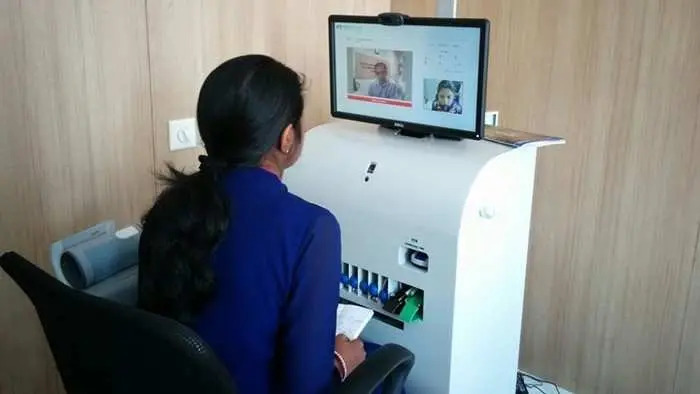IITian’s invention taking over the traditional clinic based model of treatment
These ‘Health ATMs’ invented by 3 IITians are slowly taking over the traditional clinic-based model of treating Indian patients.
Three engineering graduates from Mumbai have developed kiosks that can dispense electronic medical diagnosis services.
Dhilly Babu and Shreyans Gandhi, who graduated from Indian Institute of Technology, Bombay (IIT-B), and Arpit Mishra, a graduate from IIT Kharagpur, first came up the idea of a ‘health ATM’ on the lines of a bank automated teller machines, especially for areas with little access to healthcare facilities. So far, Yolo Health, the company established by the young entrepreneurs, has installed 18 such kiosks in different areas of the country, including two in Mumbai and one in Thane.
“Just like bank ATMs, the health ATMs provide primary-level services without having to go to a clinic. In majority of rural areas, there’s a dearth of doctors. The clinic-based model doesn’t work in most of these parts. Health ATMs not only provide basic diagnosis but also connect villagers to nearby doctors,” said Babu.
From basic health indicators such as blood pressure, body mass index (BMI) and fat and muscle percentage, to various blood and urine tests, as well as cardiac and respiratory check-ups, the kiosks are equipped with tools and sensors to perform the primary diagnosis, whose reports are generated instantly. For further diagnosis, the patients can be connected top a doctor through video-conferencing. A full-time attendant, who could be a community worker or a para-medic, assists patients.
In order to establish a wide network of their services, the young engineers have joined hands with various corporate firms and state governments, that provide the funding and infrastructure to install these kiosks. They also tie-up with local hospitals, whose doctors remain available for telemedicine and authenticating the diagnostic reports. While the general health check-up is provided free of cost, more advanced tests are charged.

